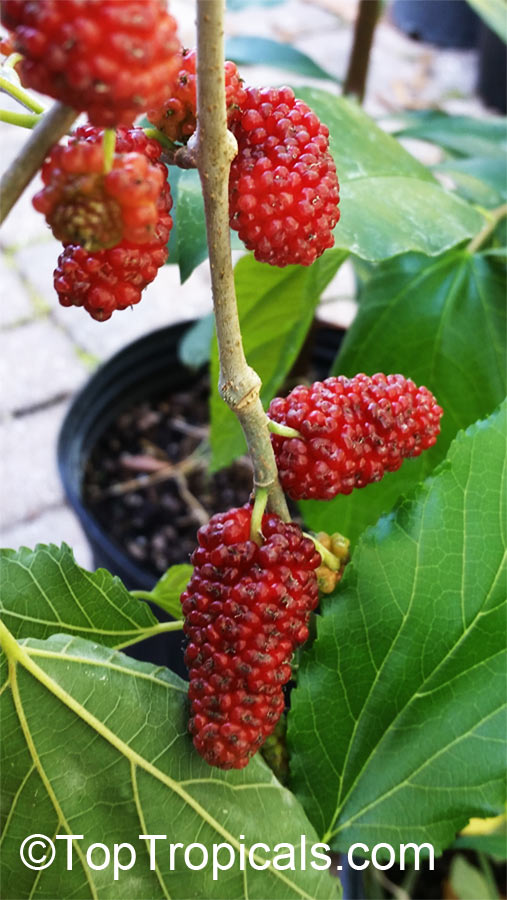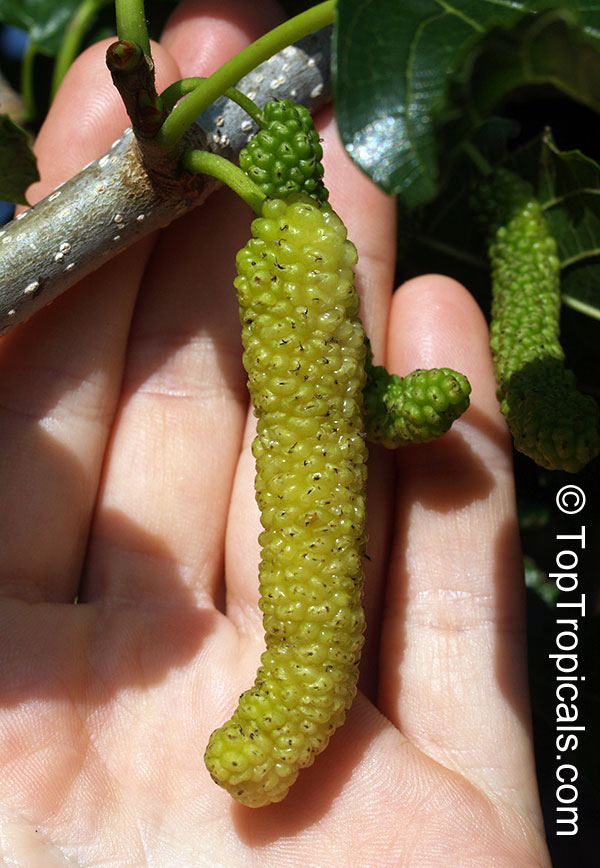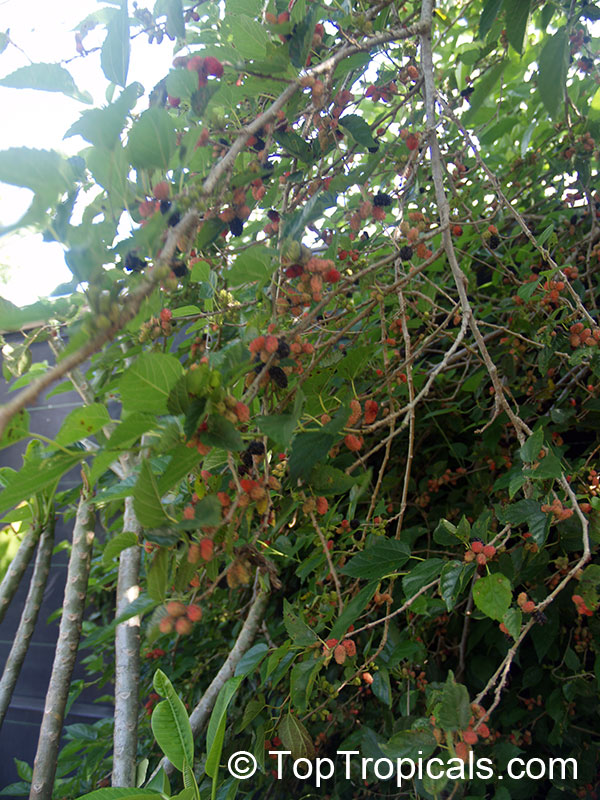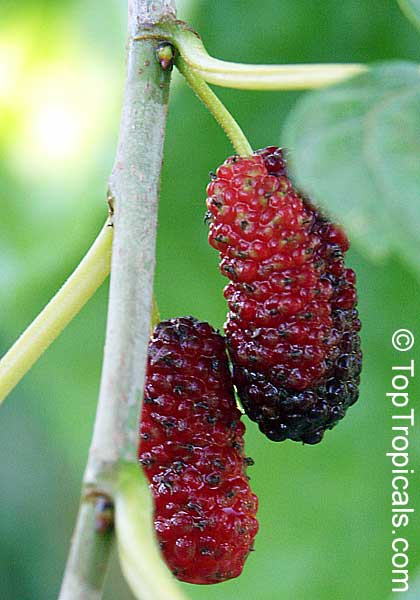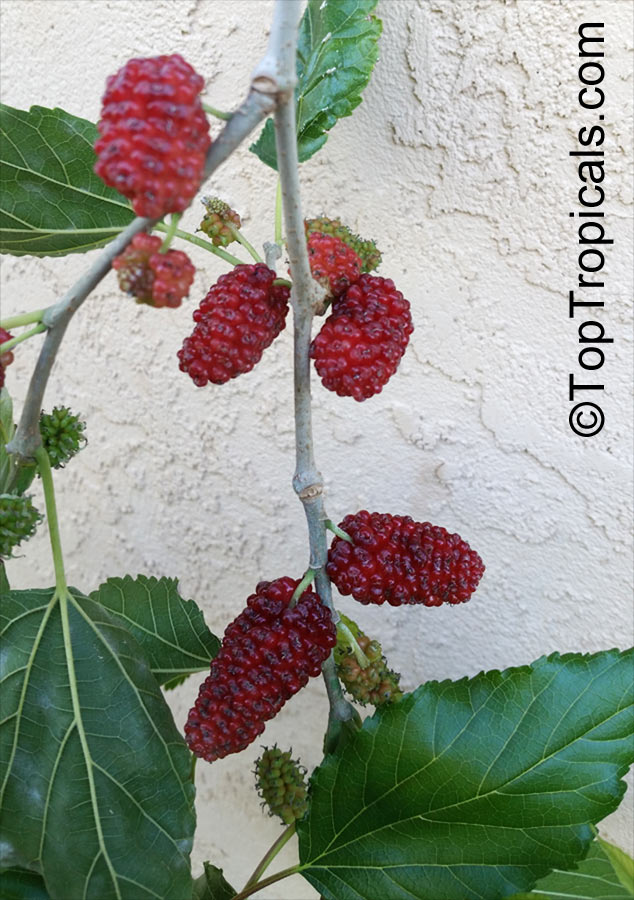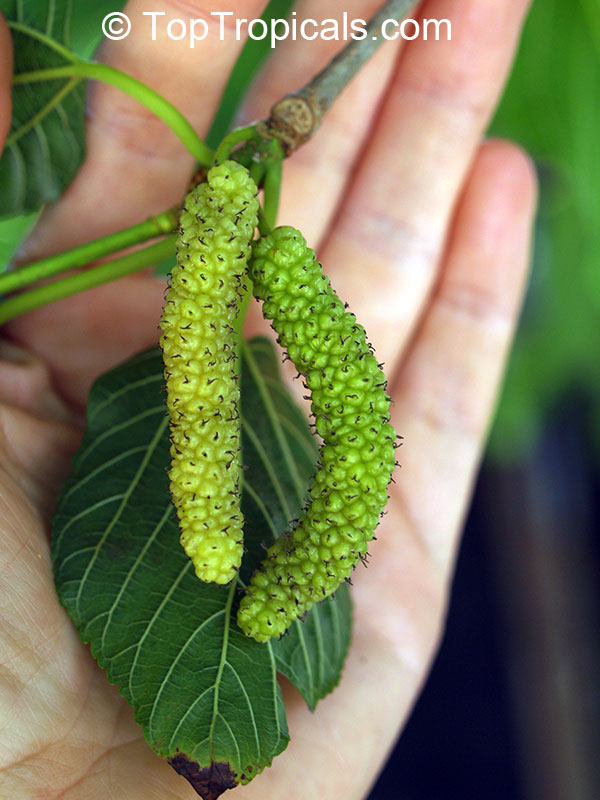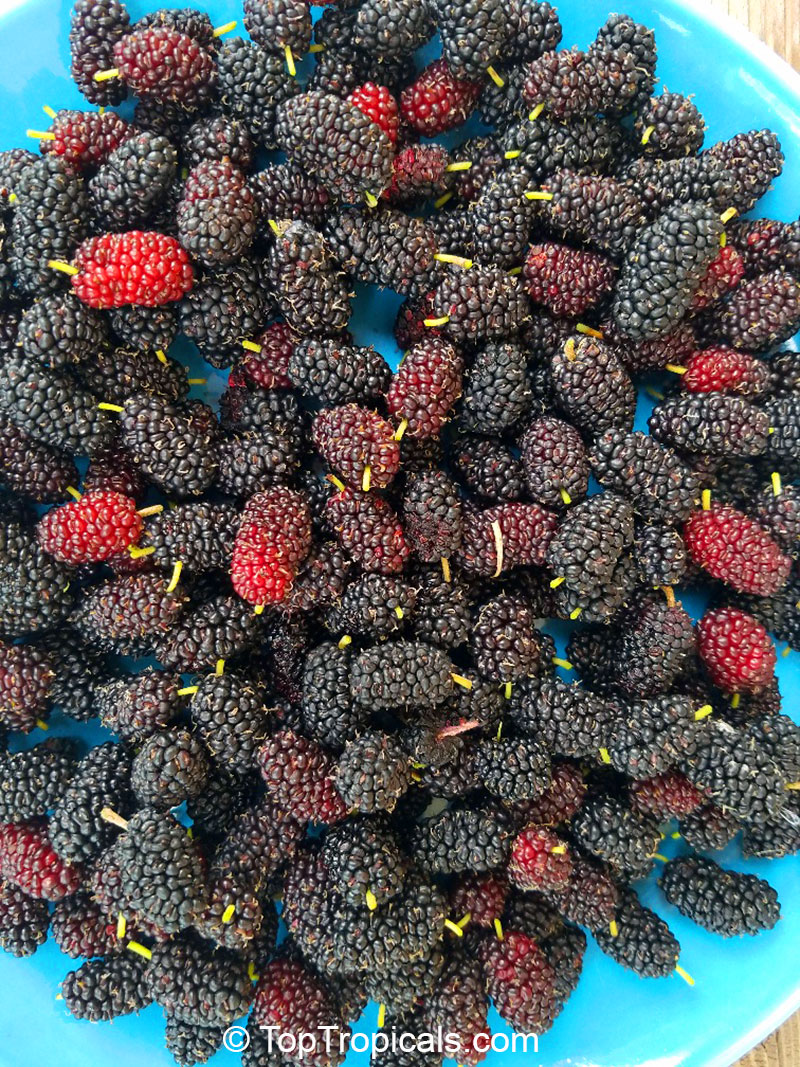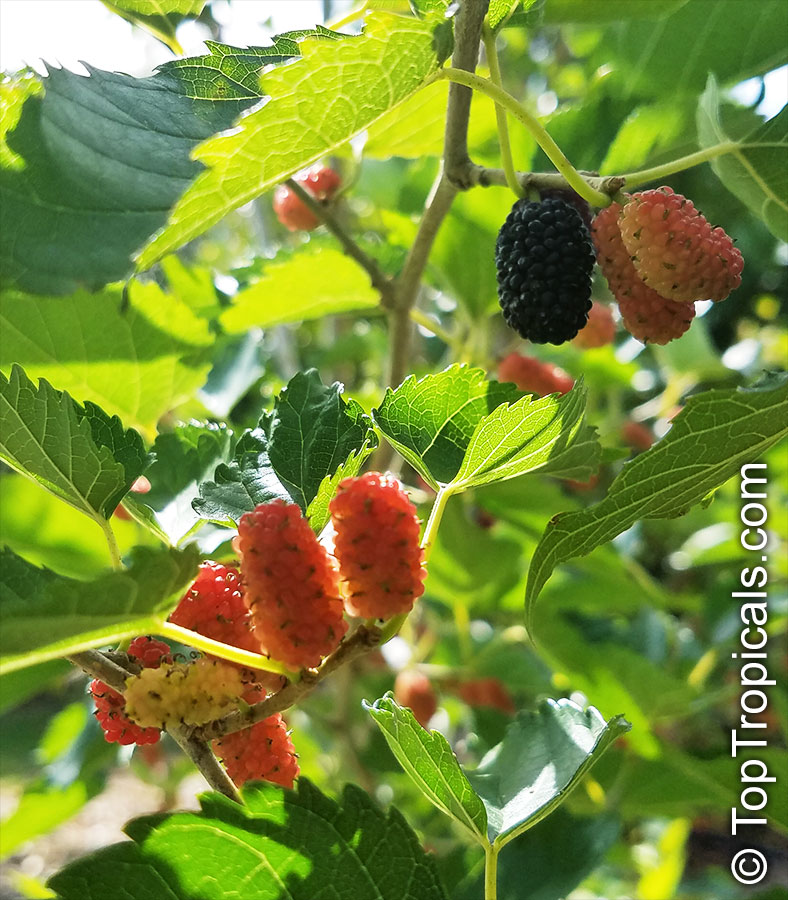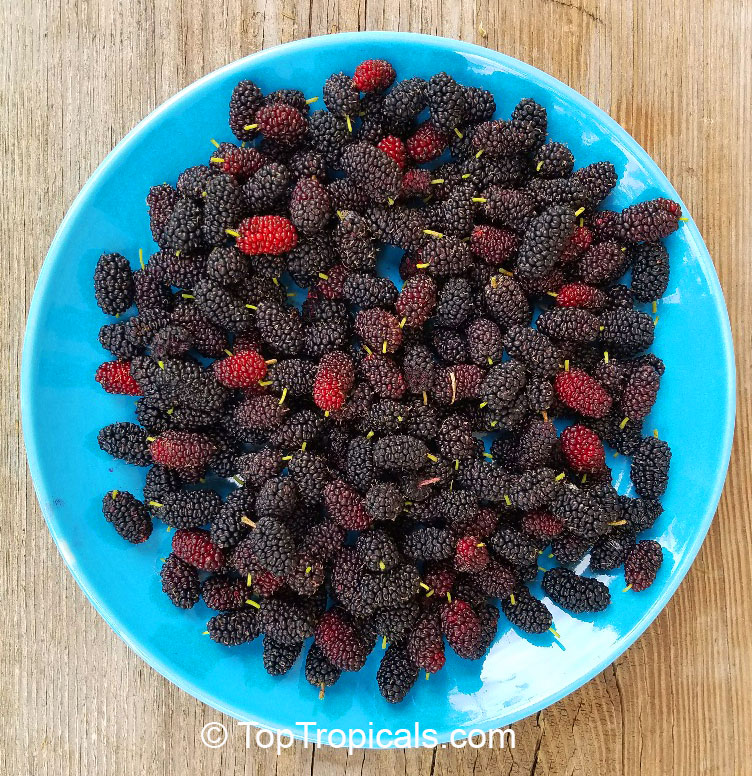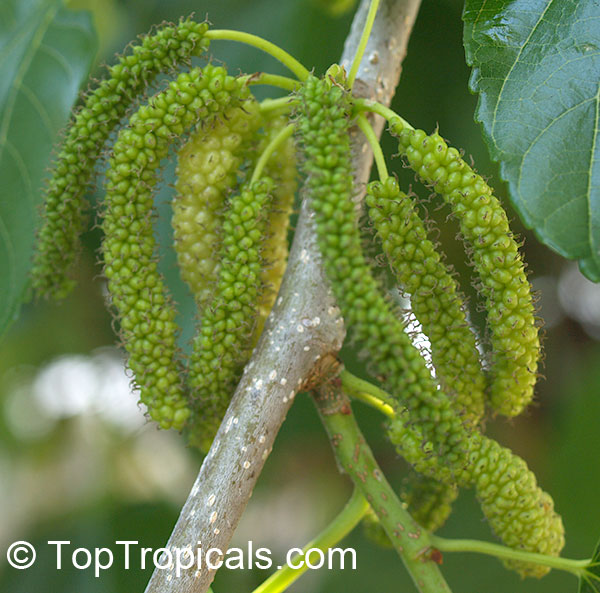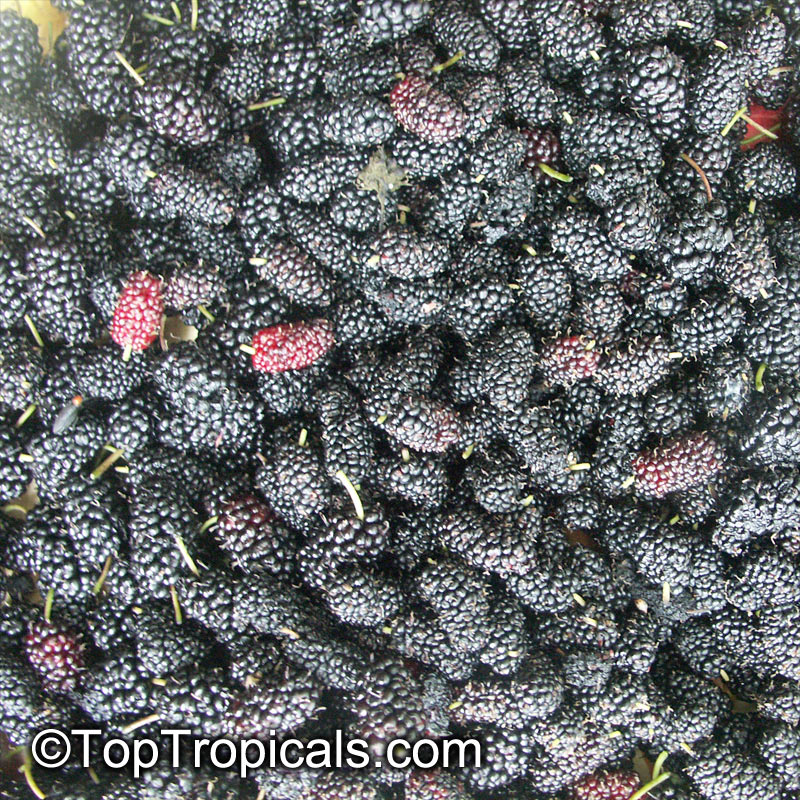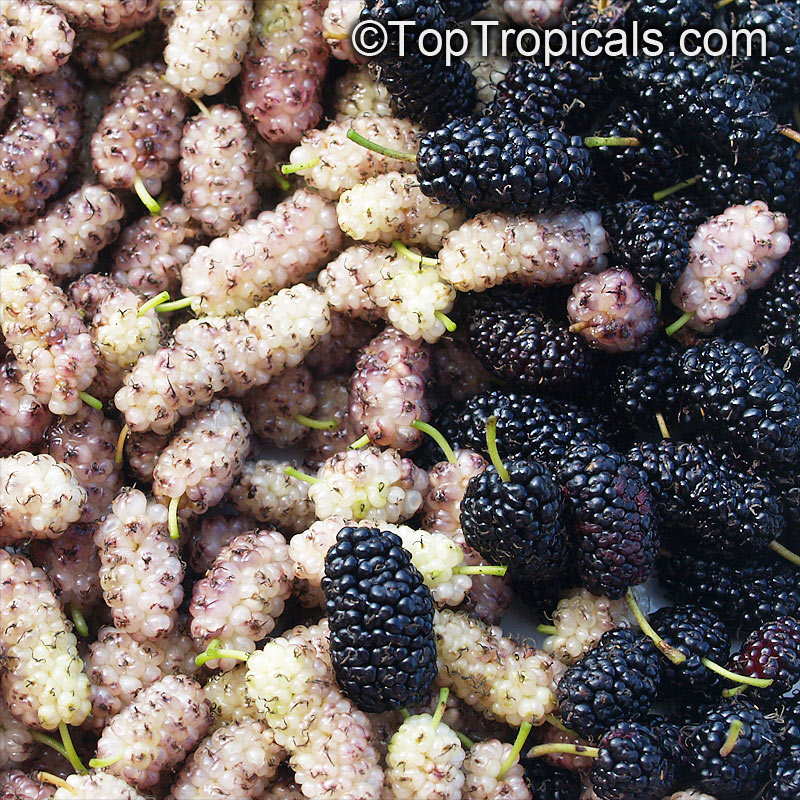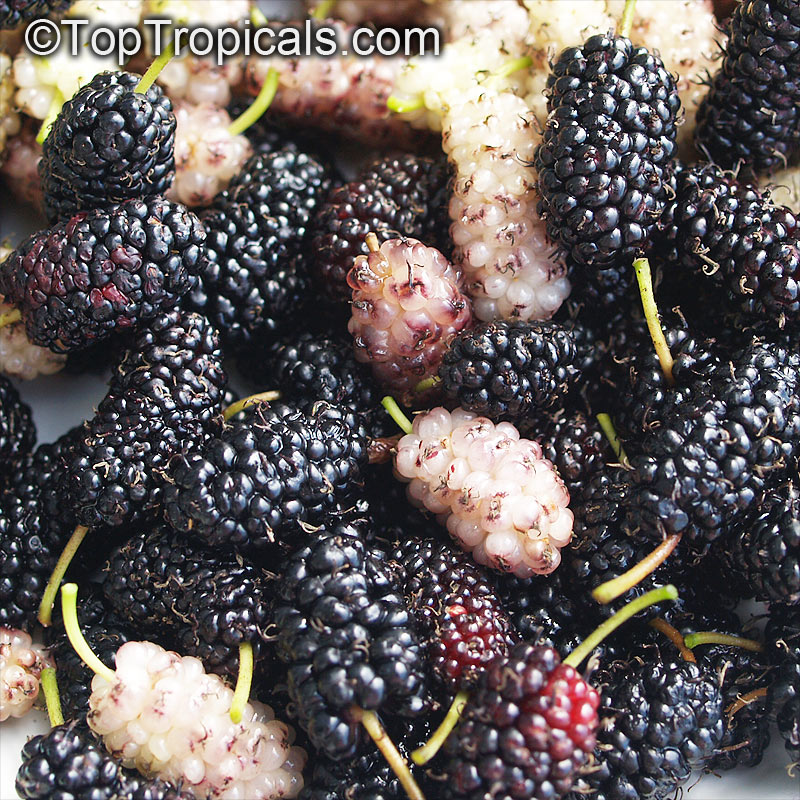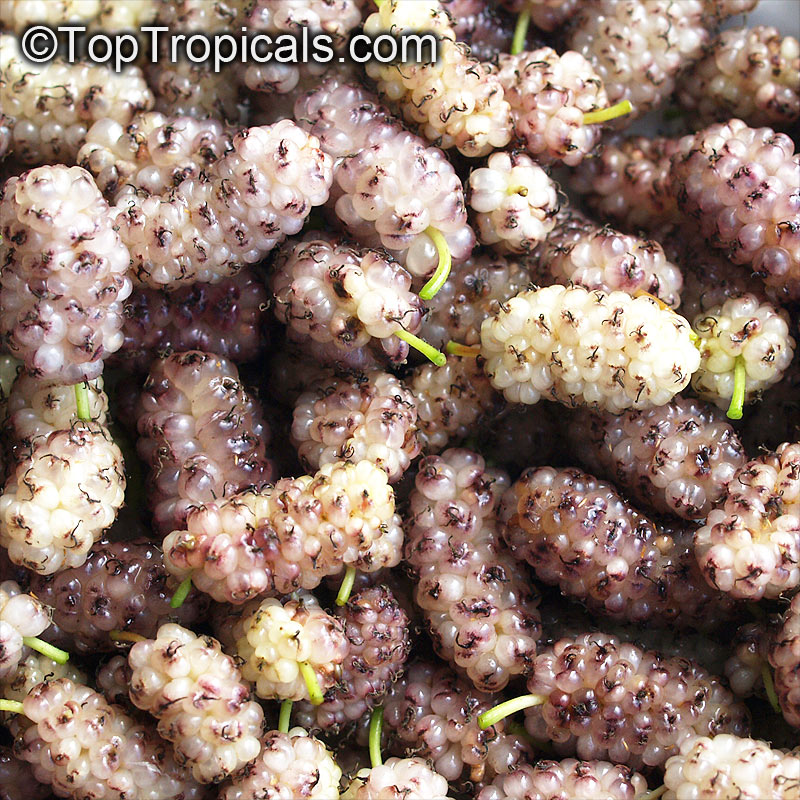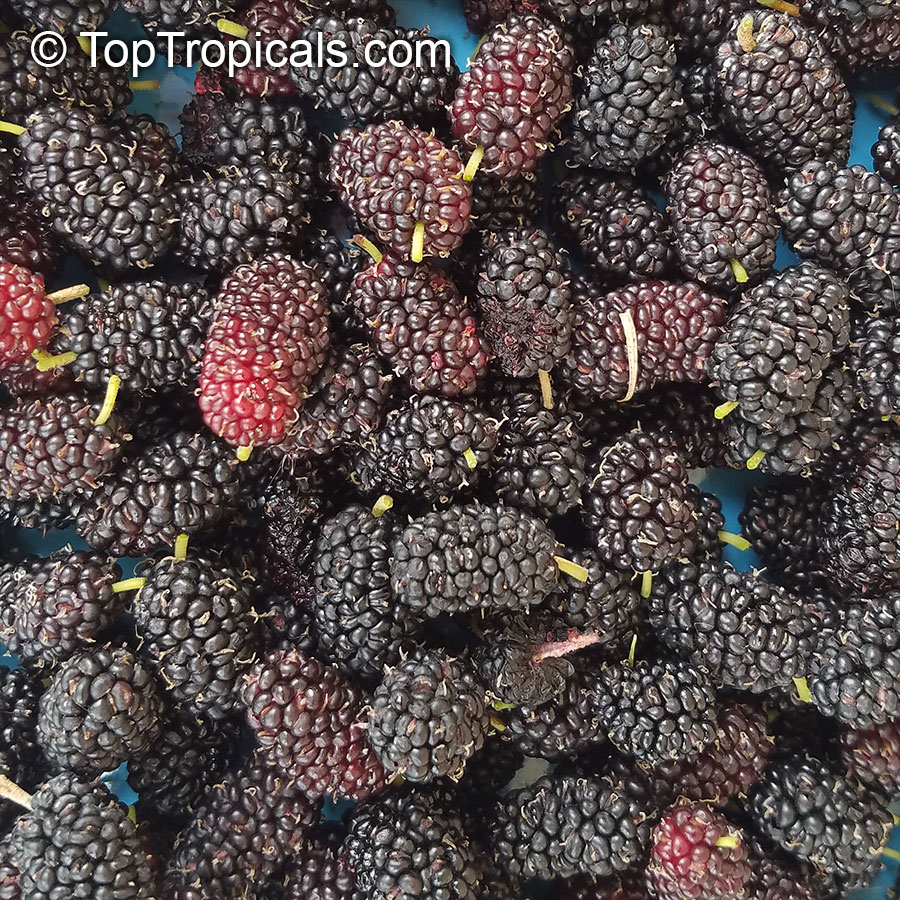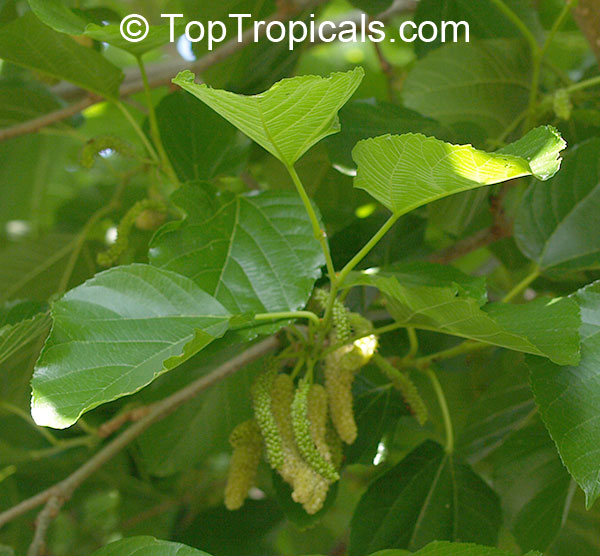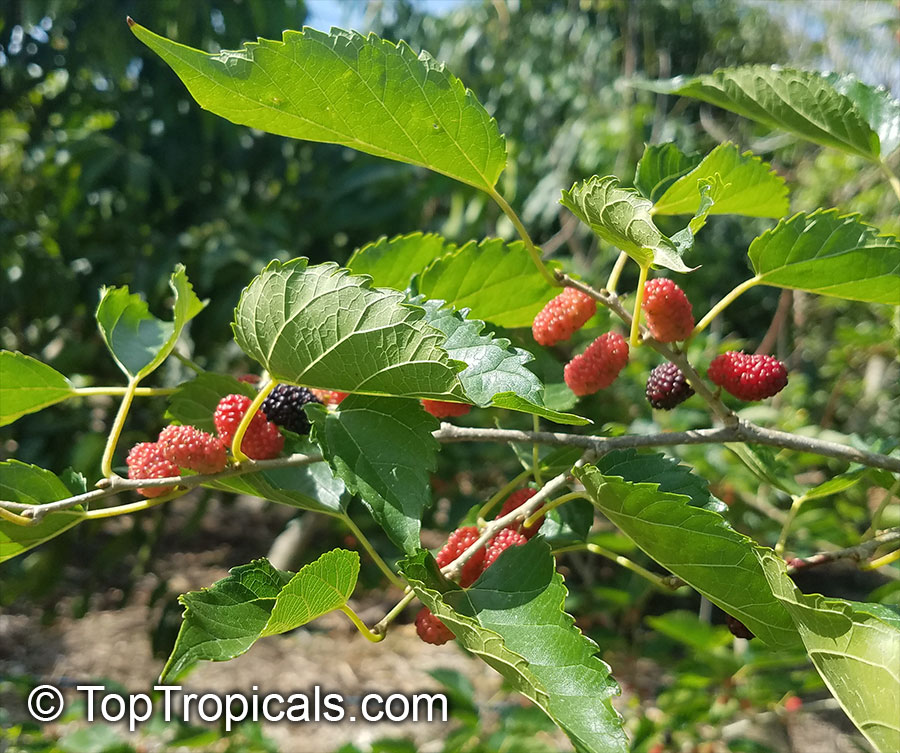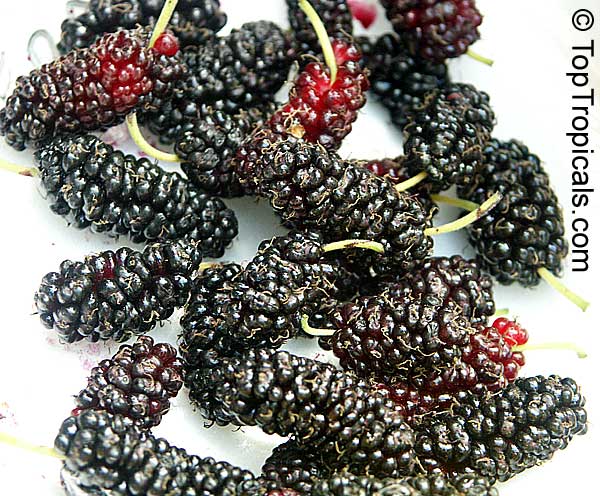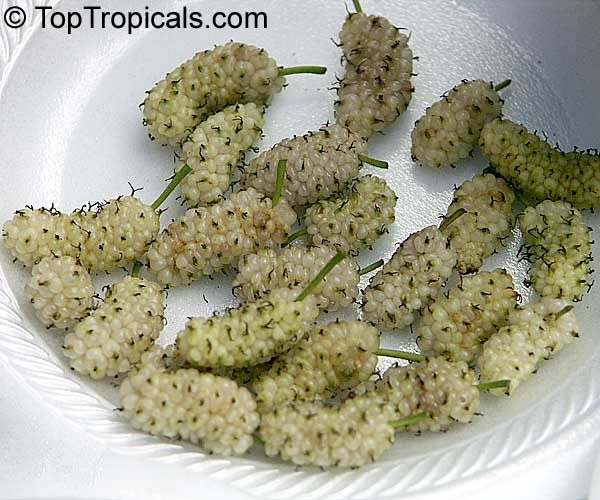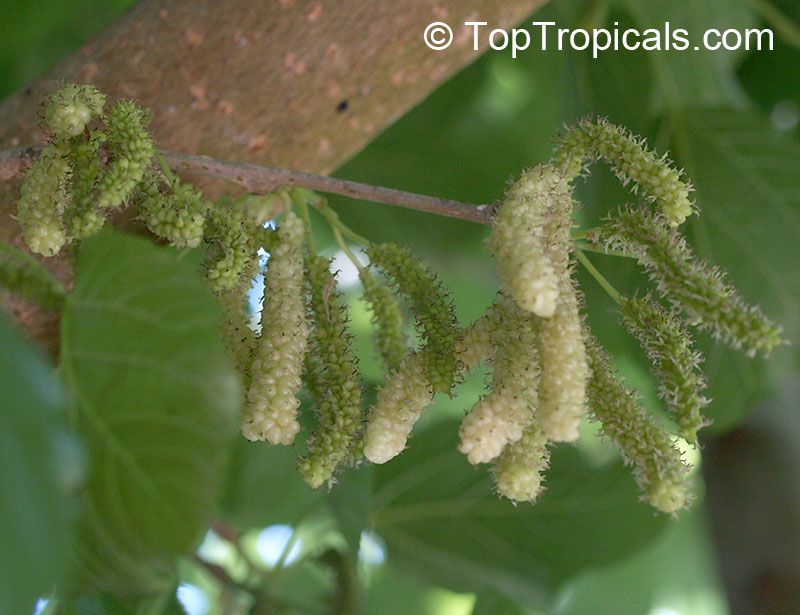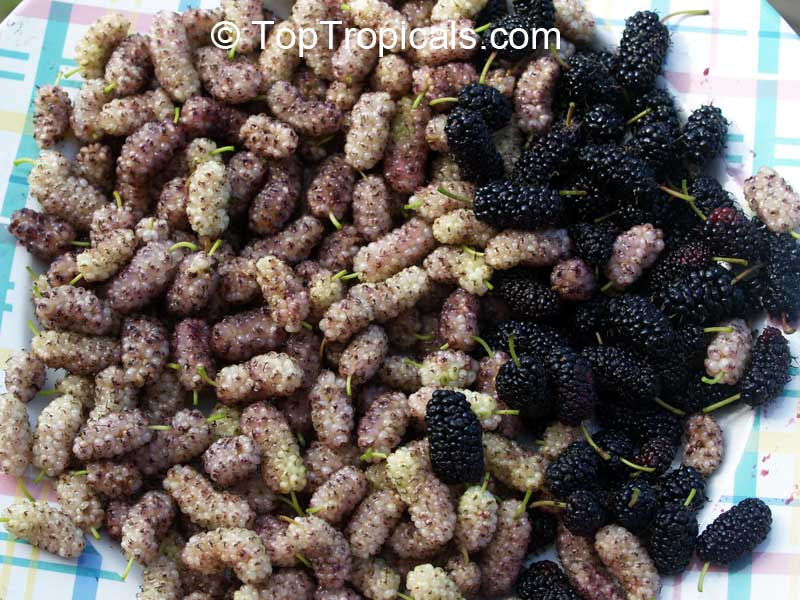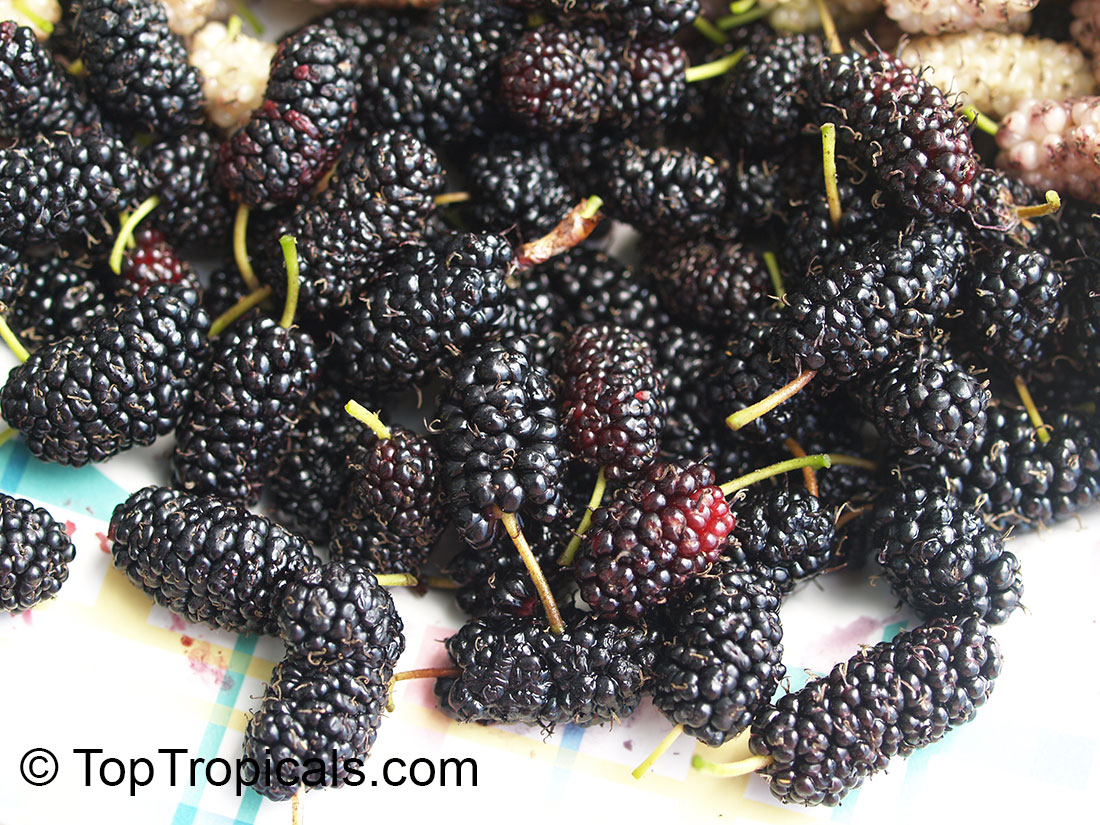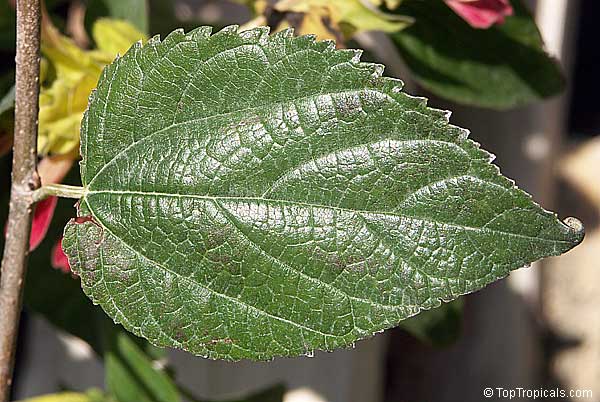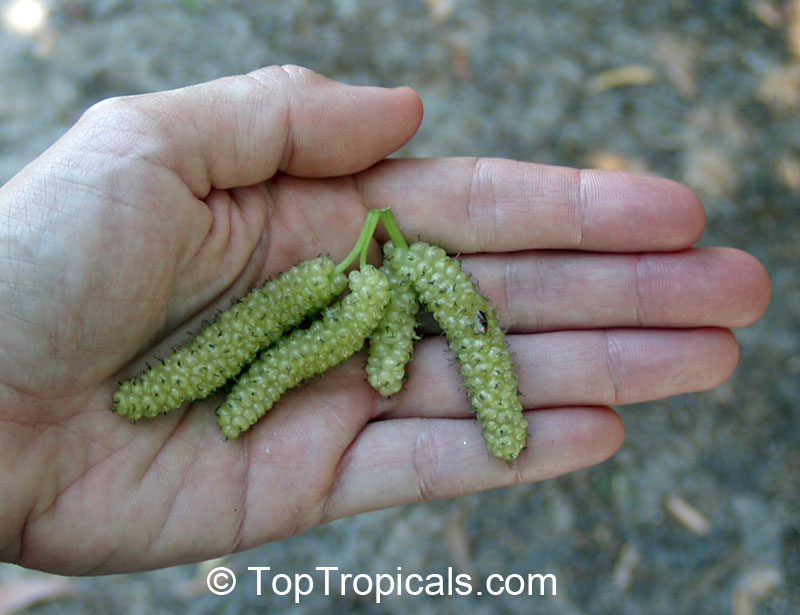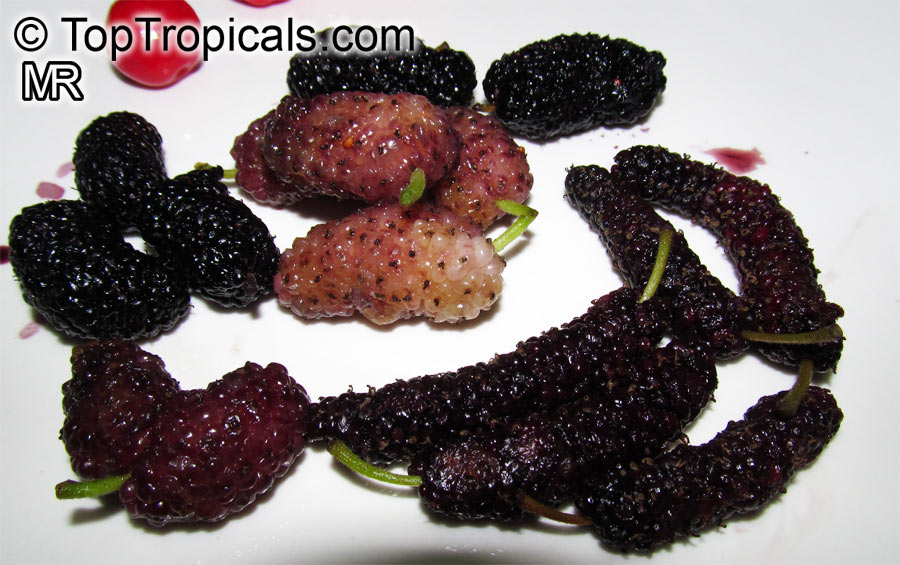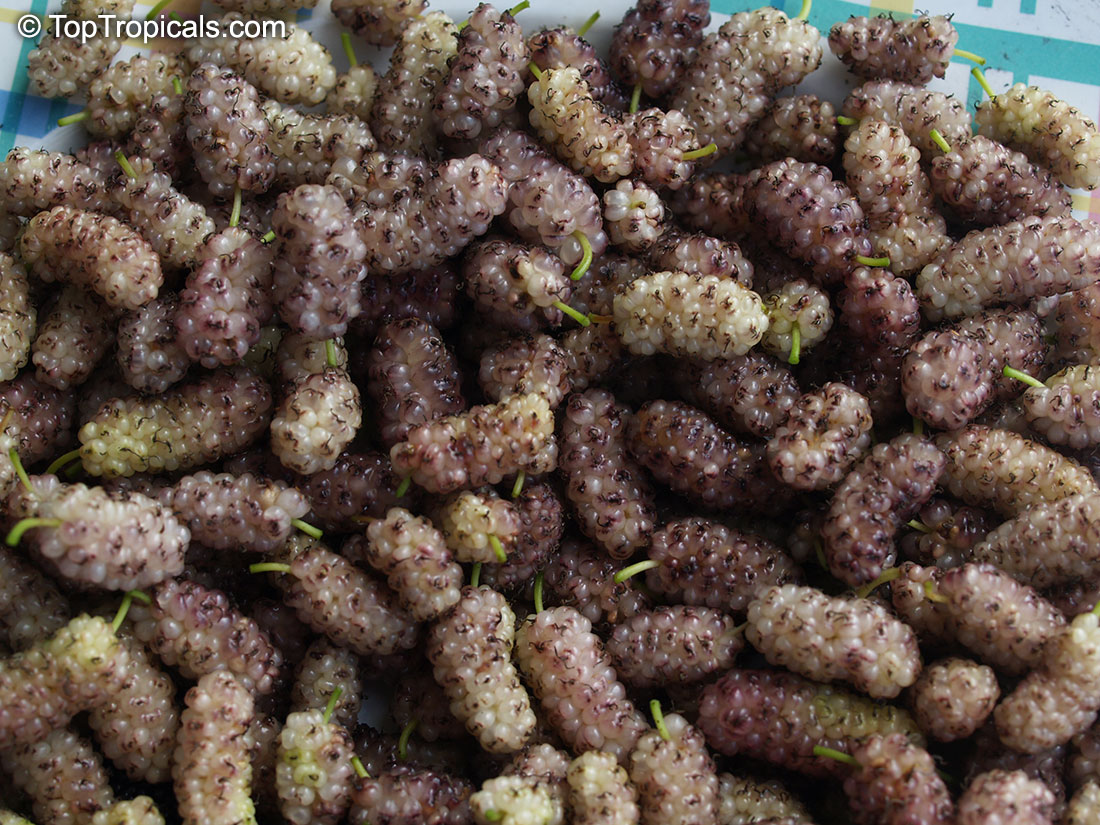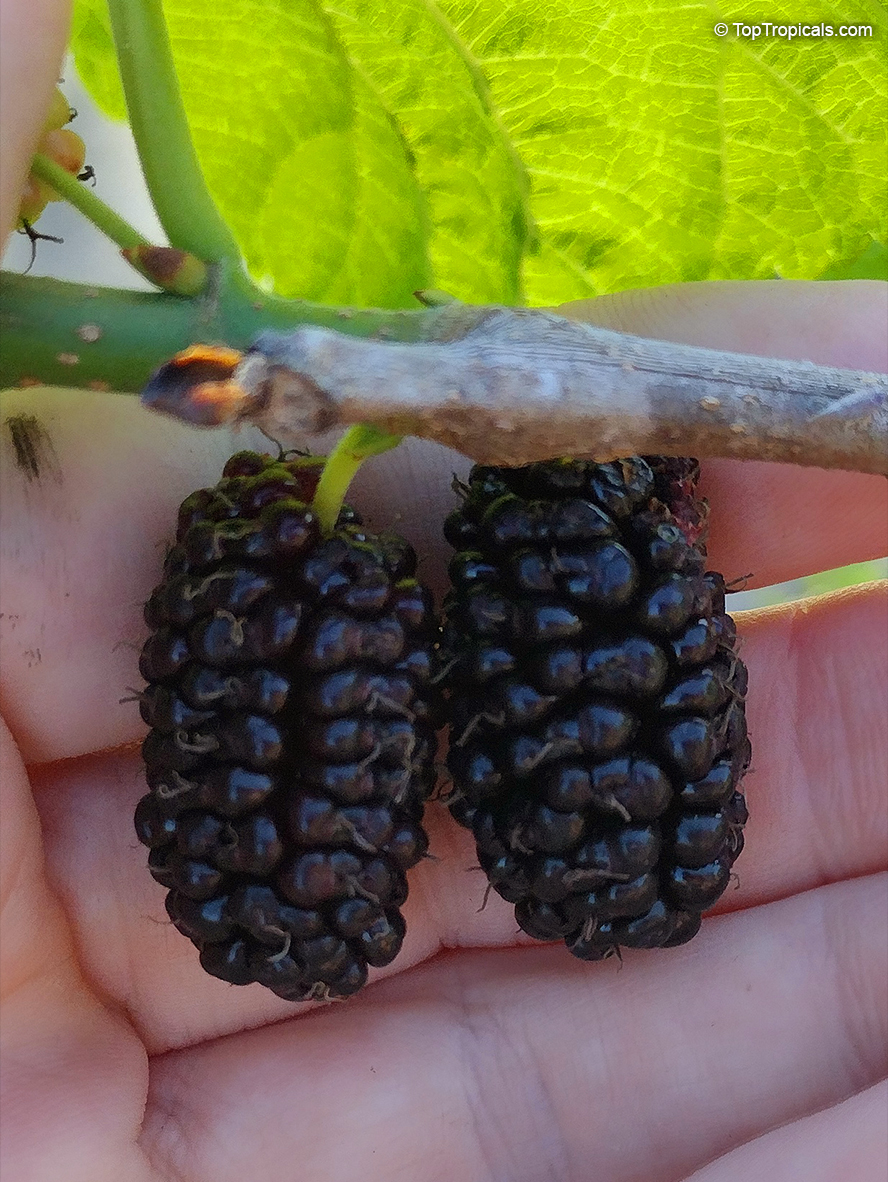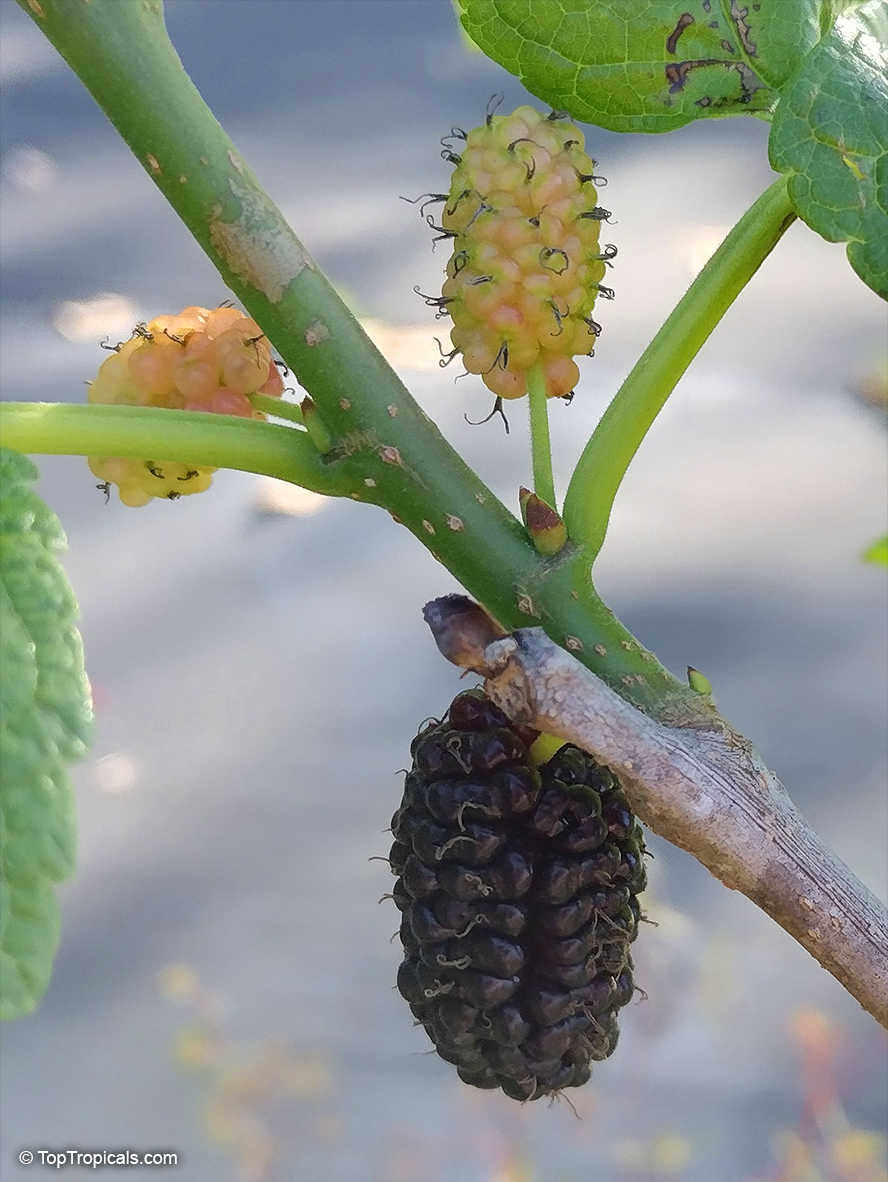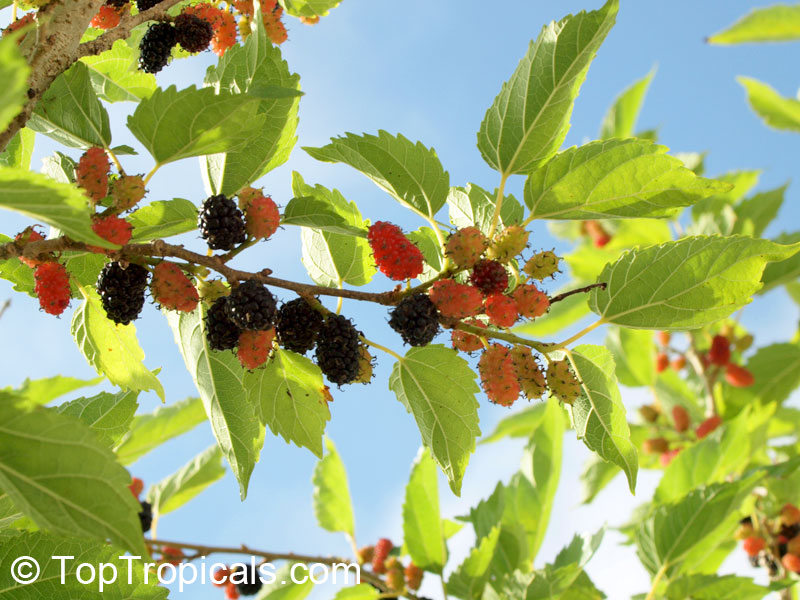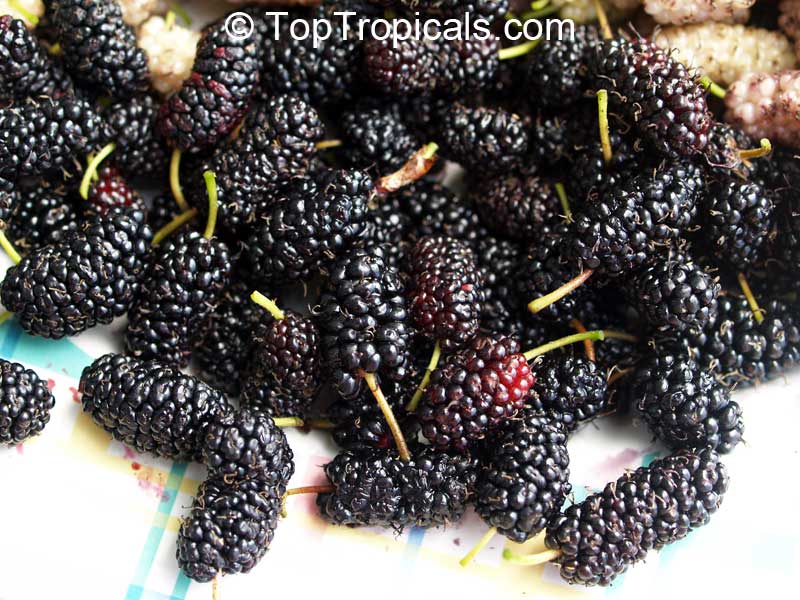Morus sp. (Mulberry)
Botanical name: Morus sp.
Common name: Mulberry
Family: Moraceae
Origin: Asia, Africa, Europe, and the Americas
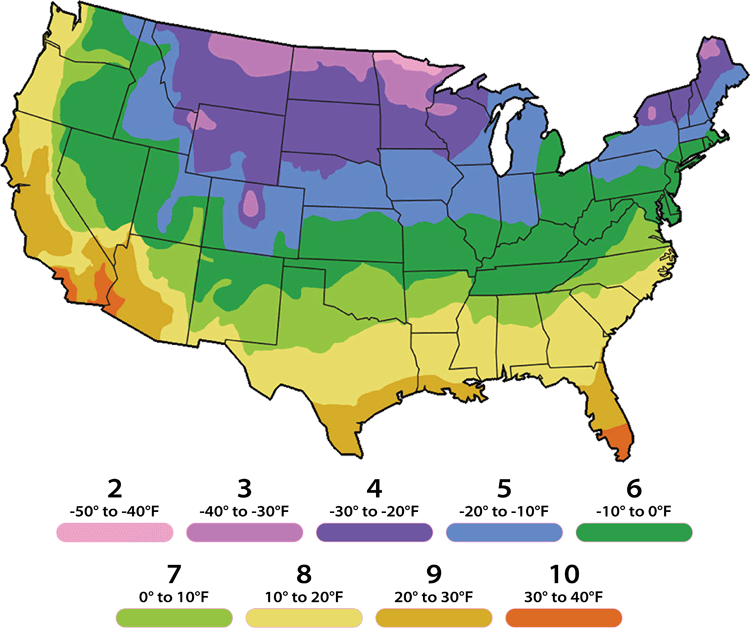







Morus is a genus of flowering plants in the family Moraceae. The 10-16 species of deciduous trees it contains are commonly known as Mulberries. They are native to warm temperate and subtropical regions of Asia, Africa, Europe, and the Americas, with the majority of the species native to Asia. The taxonomy of Morus is complex and disputed. Over 150 species names have been published, and although differing sources may cite different selections of accepted names, only 10-16 are generally cited as being accepted by the vast majority of botanical authorities. Morus classification is even further complicated by widespread hybridisation, wherein the hybrids are fertile.
Illinois Everbearing: This hybrid is not as well known as some of the older mulberry varieties. It originated in Illinois around 1947, and because the berries were large, flavorful, nearly seedless and had a long season, the tree was introduced commercially in 1958. Imagine clusters of very large, very sweet blackberries growing on a tree. A beautiful ornamental with dark green, tropical-looking leaves, it can reach 30 feet tall (or prune to keep smaller). Developed in White County, Illinois nearly 50 years ago, it produces berries from July to September. Exotic mulberries are easy to grow. A beautiful ornamental bearing sweet, juicy fruit. Tastes like extra-sweet blackberries. May bear fruit first year after planting. Disease and drought resistant. Plant your tree well away from paving, patios or walks. Then, beginning the very first year, you can enjoy its fruit all Spring to Summer. In fall its leaves will turn yellow, then drop. Late in spring they emerge again, soon followed by small greenish flowers. You don't have to worry about cross-pollination with this mulberry; one tree is all that is needed. Give the tree a sunny site, and do not allow it to dry out in summer. Prune it only to keep it out of your way, and low enough so the berries are easily reached. If you don't prune, its rapid growth may alarm you: despite the children's rhyme, it's not a bush but a substantial tree. Fortunately, the yellowish wood is useful. There are no bug or disease problems. Birds may compete for the berries, but there will be enough for all.
Similar plants: Morus sp. (Mulberry)
Related Products: Morus sp. (Mulberry)
"Revelation 22: Verse 2: In the midst of the street of it, and on either side of the river, was there the tree of life, which bare twelve manner of fruits, and yielded her fruit every month. and the leaves of the tree were for the healing of the nations."
Recommended Fertilizer: SUNSHINE C-Cibus - Crop Nutrition Booster
SUNSHINE-Honey - sugar booster
Recommended Fertilizer: SUNSHINE C-Cibus - Crop Nutrition Booster
SUNSHINE-Honey - sugar booster
This tree is hardy in USDA Zones 5 to 10, surviving temperatures down to -20F while also thriving in summer heat and poor soils. It grows quickly, adding 3 to 5 feet a year and maturing into a 20 to 30 ft shade tree. Its foliage is also attractive, with deeply carved, oak-like leaves that add ornamental value to the tree. Some trees even fruit in their first year.
The long, everbearing season is one of its biggest strengths. Berries about an inch and a half long ripen steadily from July into September, instead of all at once. They are sweet, juicy, and slightly tangy, often considered the best-tasting mulberries. Each tree can yield 15 to 25 pounds of fruit by its second or third year.
Illinois Everbearing is low-maintenance, generally free of pests and diseases, and easy to establish. Plant it for the fruit, the quick shade, or the wildlife it attracts. With good care, this tree can be a long-lived part of your garden.
Recommended Fertilizer: SUNSHINE C-Cibus - Crop Nutrition Booster
SUNSHINE-Honey - sugar booster
Recommended Fertilizer: SUNSHINE C-Cibus - Crop Nutrition Booster
SUNSHINE-Honey - sugar booster
Recommended Fertilizer: SUNSHINE C-Cibus - Crop Nutrition Booster
SUNSHINE-Honey - sugar booster
Recommended Fertilizer: SUNSHINE C-Cibus - Crop Nutrition Booster
SUNSHINE-Honey - sugar booster
Recommended Fertilizer: SUNSHINE C-Cibus - Crop Nutrition Booster
SUNSHINE-Honey - sugar booster
